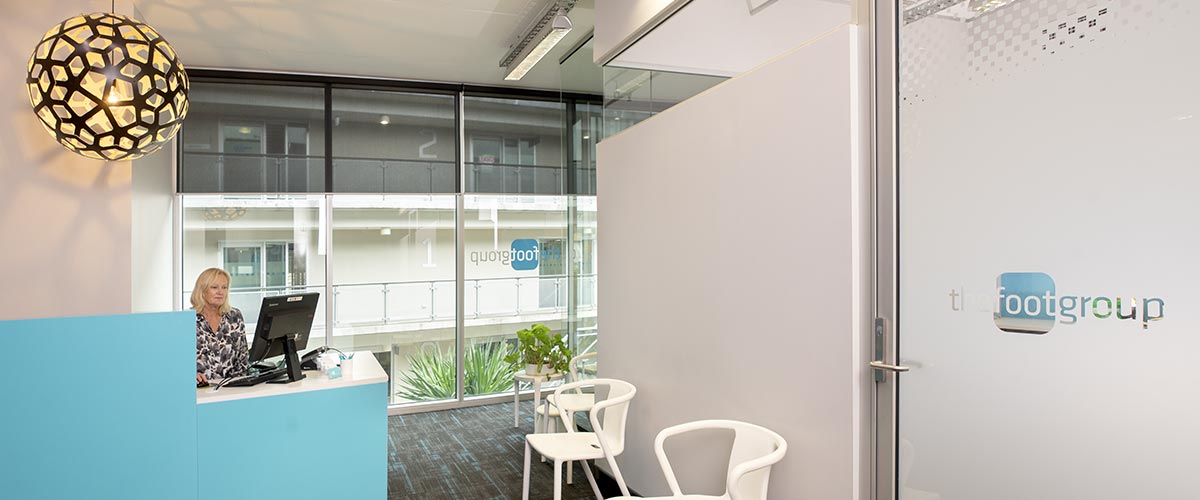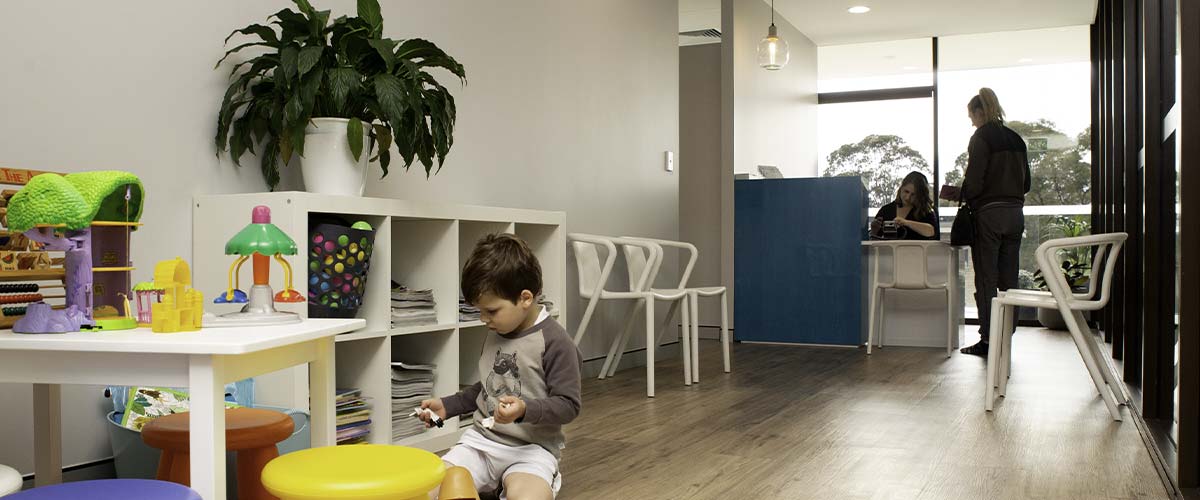Dry needling

Why do podiatrists use dry needling?
Some foot pain, such as Achilles tendonitis and plantar fasciitis, can be caused by tight muscles higher up in the legs such as your hamstrings and calves. By treating these areas of tightness, dry needling lengthens and stretches your muscles, relieving the pain in your leg or foot.
What is dry needling?
Dry needling involves extremely fine, sterile needles inserted gently into the skin and muscle to stimulate a myofascial trigger point. The word myofascial means muscle tissue (myo) and the connective tissue in and around it (fascial).
Myofascial trigger points are hard “knots” which are usually tender or painful with direct pressure. Myofascial trigger points can develop from any occupational, recreational or sports activities, where constant repetitive stress is placed upon a muscle and the recovery period is insufficient. The overworked muscle is deprived of proper blood supply, nutrients and oxygen which delay it from returning to its normal resting state. A build up of lactic acid sensitises the nerves and causes pain.

Dry needling stimulates these trigger points, helping release the tension in the muscles and encouraging blood flow to promote healing.
What happens during a session?
Your podiatrist will start off by locating trigger points in the affected muscle through direct pressure onto the muscle. Often when a trigger point (area of taut/tensed muscle) is palpated, you will feel a sharp aching pain which helps confirm the exact location. Your podiatrist will mark the location of those tender areas.
At the marks, your podiatrist will insert a fine, sharp needle through the layers of the skin to target underlying myofascial trigger points. A local twitch response may occur, which is a quick spasm of the muscle that indicates the presence of a myofascial trigger point. Your podiatrist may also opt to move the needle around on that specific area to make sure the trigger points are all released before focusing on other areas.
The podiatrist may end the session with some gentle pressure and massage to help prevent swelling or soreness post-treatment.
What conditions can be relieved by dry needling?
Dry needling can help address these common conditions:
- Plantar fasciitis
- Achilles tendinopathy
- Shin splints
- Tibialis posterior tendinopathy
- Tibialis anterior tendinopathy
- Calf tightness and cramping
How many sessions are required?
Most patients find that there is an immediate improvement in functionality and mobility after a dry needling session. However, for a lasting benefit, patients should ideally undergo a minimum of 3 weekly sessions.
How long do the positive effects of dry needling last?
An initial treatment usually provides immediate short term relief and results can typically last several days and up to a week from a single session. However, the length of relief will vary from person to person and it may require several sessions for the muscle to be functioning optimally again. With repeated dry needling treatment, the goal would be to increase the timeframe of relief between each subsequent dry needling treatment.
Does dry needling hurt?
Dry needling causes minimal discomfort upon insertion of the needle. During an active muscle twitch response, you may feel a slight shock or muscle cramp sensation when the active trigger point is released.
Overall, dry needling is a safe procedure that rarely draws any blood or causes any serious long standing pain.
Minor side effects may include:
- Bleeding, bruising, and pain during or after treatment
- Muscle fatigue
- Mild nerve damage which resolves within a few days/weeks.
Is dry needling the same as acupuncture?
Dry needling is different to acupuncture, which is an ancient Chinese medical practice aiming to create balance within the body’s Qi, or vital force, reducing disease and illnesses.
Based on the science of neurophysiology, dry needling stimulates trigger points to enable pain relief and better functionality.



